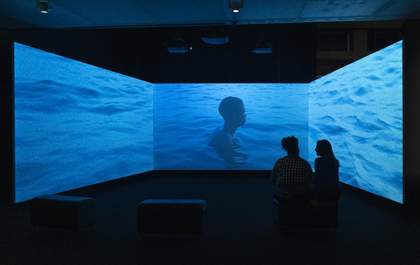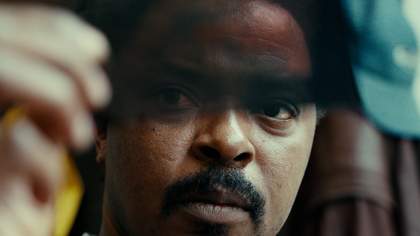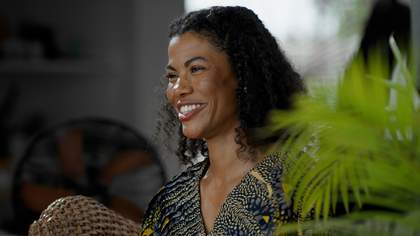Julian, you can't think about the world without thinking about Sierra Leone. I never had anyone say that. I never have had anyone like centre Sierra Leone in global history.
Hi my name is Julianknxx I'm a visual artist and a poet The work in question is In Praise of Still Boys. This work was made, so I shot it in Sierra Leone and it was the first time back in like 20 odd years. I left Sierra Leone when I was about I guess nine, ten and this was just like after the war. So you can imagine leaving during war, your last memory of a place would be like smoke, fire gun sounds. And then like to be in England for like, that long and then going back everything's changed. Seeing family, you know seeing the spaces that I used to play around and also like meeting the boys that you know, became what the film is about. You then think about yourself in that, in that light, like this is you in that sense. To meet myself back at that time. How do I, how would I want to present myself? How do you kind of find the stories that are there now? And how you draw that parallel to like global history?
Yeah so that was kind of like the thinking, how do I then begin to tell the story of Freetown looking or anchoring the Atlantic Ocean with it, but through the lens of these boys? Most of my work starts with poems or like an idea that I'm trying to explore. Poetry is my practice, that’s how I got into this space. After sort of like making the work I then do this thing where I speak to elders or speak to people just to listen and it's not about facts. It’s this idea of like re-memory work, just people recounting whatever it is that they want to say.
So at the beginning of the film the voiceover starts with George Shire, Uncle George and he was like, he gave me basically a history lesson. Because a lot of our histories have been sort of placed in the margins. The history is told from like top down In Sierra Leone I remember during the war when we were listening to BBC sometimes I thought like the news was very different from what I'm hearing or what I'm seeing on the ground. But I love this idea of like you know you listen to the people that are doing everyday life to recount what happened. That's kind of like a thing in all of my work. How do I listen with openness and find poetry in what is being said?




